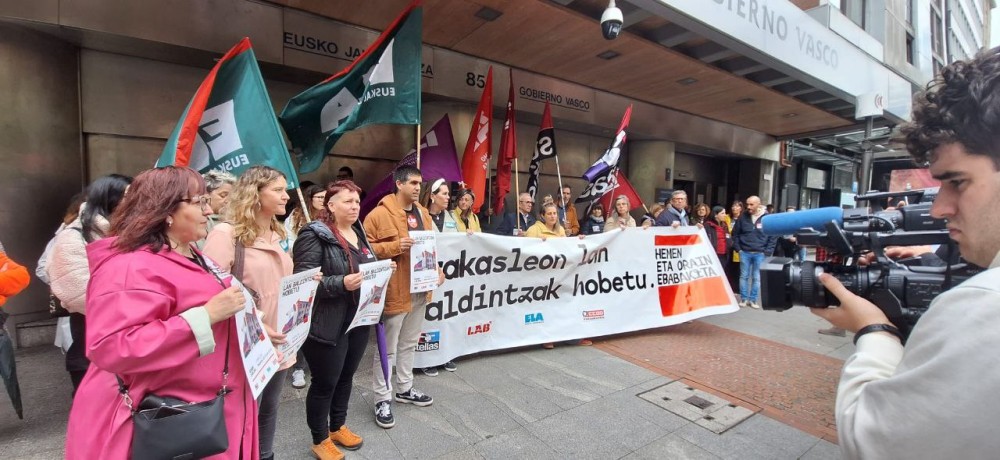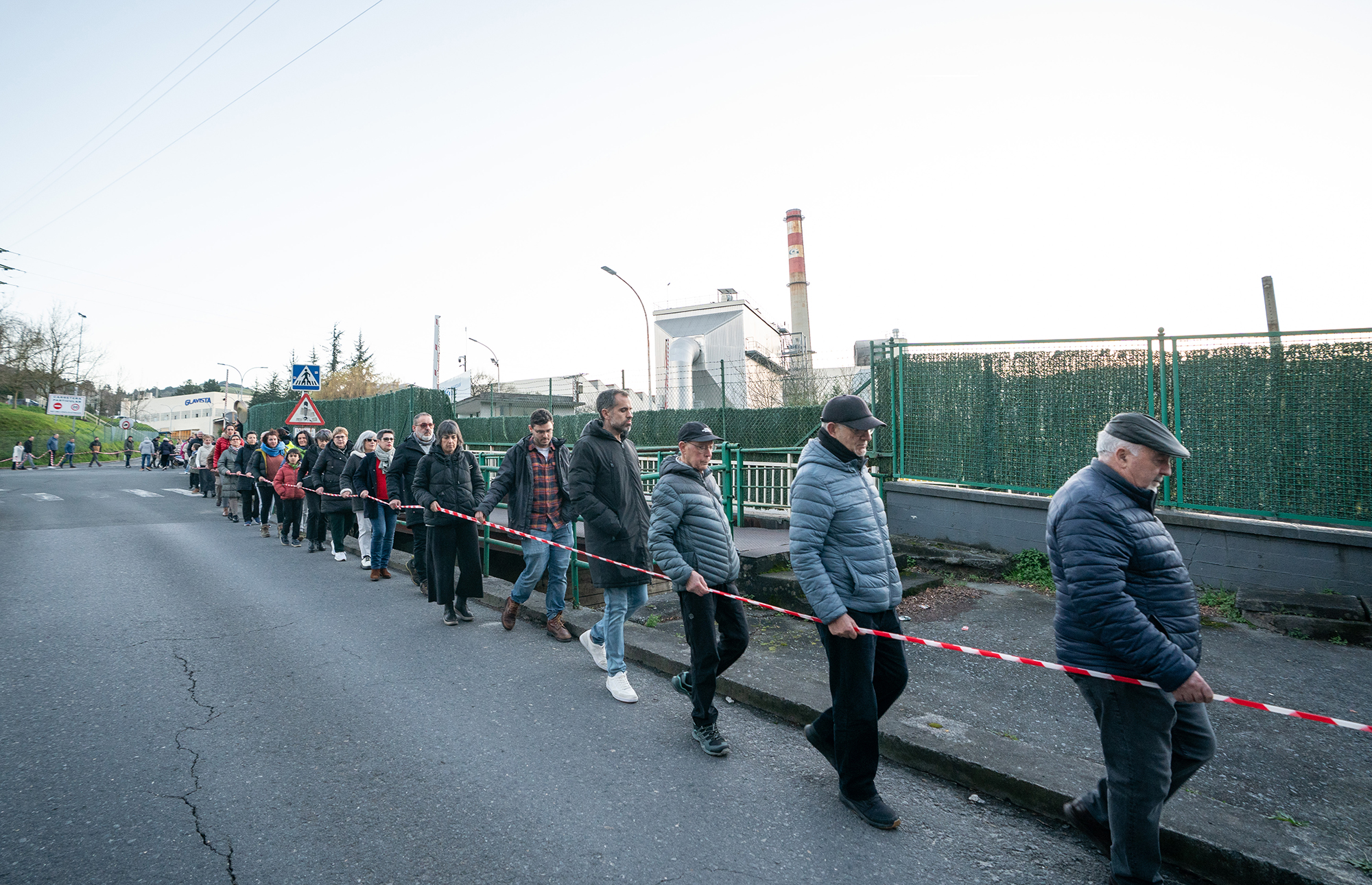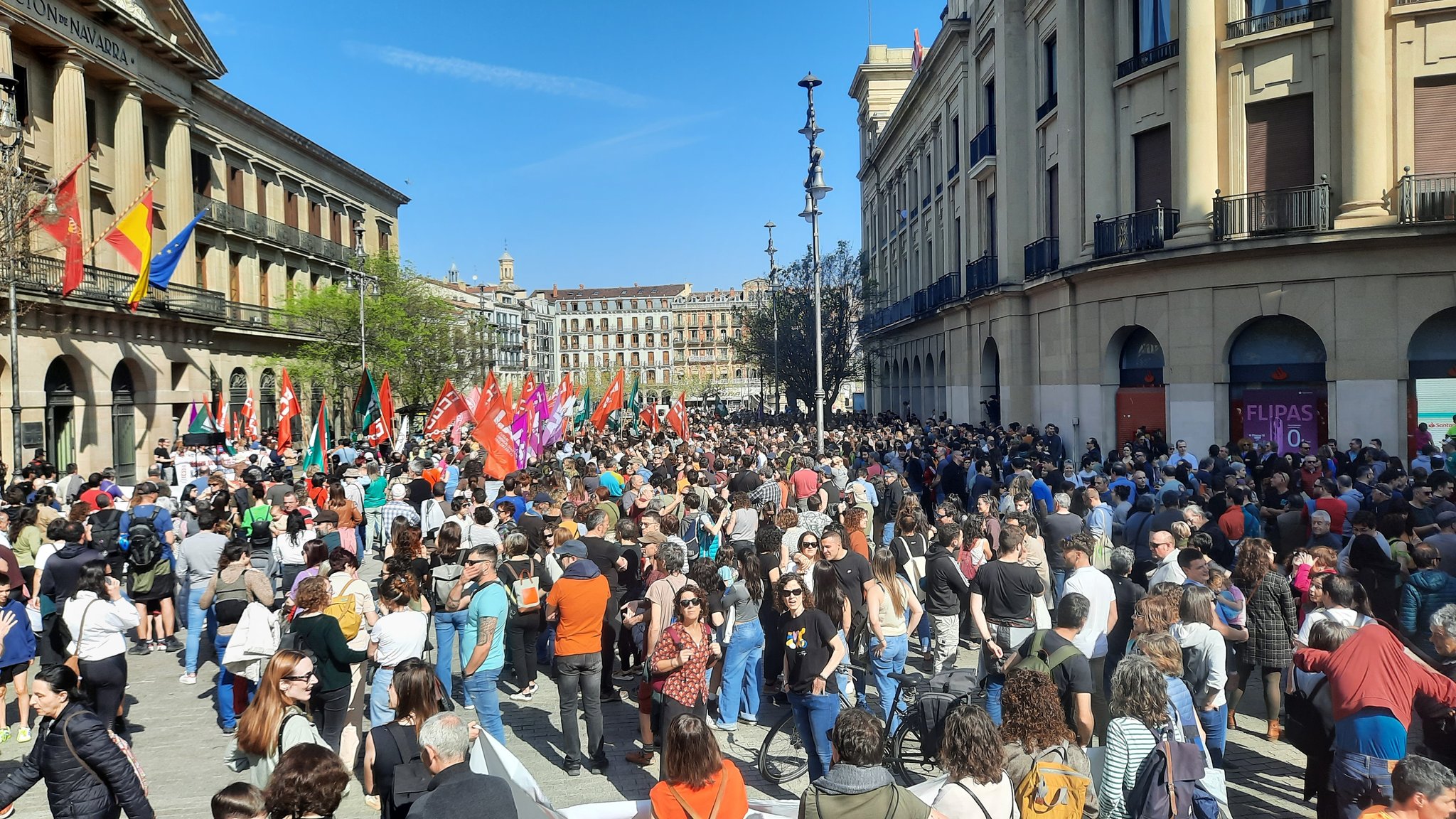The French oil refineries are still on strike, despite government orders for redemption.
- The strike movement, which has spread since the end of September, has increased more and more in the daily lives of citizens: Only one third of the gas stations in the French State have fuel. That is why the government has put its hand in the conflict between the two parties, activating repression and forcing strikers to return to work. Faced with them, CGT and FO are firmly following and are about to extend the strike to the whole energy sector, organising an inter-professional strike by 18 October.

Owing to the strike movement initiated at the end of September, six of the eight oil refineries in the French State and other fuel stores are slow or totally inactive. Thus, the effect of the blockade is increasing day by day: on 13 October a third of the petrol stations have little fuel and prices are rising again. The CGT and FO trade unions continue to fight hard for the wage increase, which is a 10% increase. The CFDT and the CFE-CGC have committed themselves to returning to work following the adoption of an agreement that represents a 6.5% increase in wages for next year and a premium of over EUR 3,500.
It seems that the workers have a strong relationship in their favour: so far Total Energies refused to speak, making the “end of the blockade” a condition, but linking the negotiations that the management approved on Wednesday, October 12. The Finance Minister, Bruno Le Maire, has denounced the strong attitude of the CGT, but at the same time, asking the employers of Total Energies for the wage increase: “It is clear that it has the power to channel the family, and it is clear that it has to do so.”
The oil refinery and fuel tank personnel of the multinationals Total Energies and Esso ExxonMobil vote on strike every eight hours, morning and afternoon. For the time being, the vote in favour of the strike prevails, even though the Government has activated the procedure of repression against the workers precisely. If you turn away from the order back to work, the stricken strikers risk a six-month prison sentence and a fine of EUR 10,000. For example, this Thursday afternoon they decided to return to work at the Esso ExxonMobil of Fos-sur-Mer after 23 days of total lockdown.
Repression: labour strikers
Faced with the growing sense of fuel shortage, the Government has taken a hand in the conflict and has chosen to take drastic measures, linking workers to the recognition procedure. On 11 October, the Defence Code and the Territorial Colleges Code activated the option: the accused strikers have to return to work. The Prime Minister asks the prefetes to activate the procedure, which was originally extended to Esso ExxonMobil, but since then also to Total Energies. It is clear to the trade unions that the right to strike is a right to freedom: “The government has made a declaration of war to strike workers in favor of wage increases,” according to CGT.
Since 1864, the French State has granted workers the right to strike. However, according to the legislation, they can be appealed in cases of threatened "urgency" and "public order, security and needs of the nation". Finally, in 2010, the procedure was activated, which was presided over by Nicolás Sarkozy, to break the strike movement against the retrospective reform.
The oil refineries are located in Gonfreville (Total) Lavera (Petroineos), Donges (Total), Grandpuits (Total), Feyzin (Total), Gravenchon (Esso), Fos-sur-Mer (Esso) and La Mede (Total). Other than those of Grandpuits, Lavera and Fos-sur-Mer, on other occasions the strike is earlier, although by order of the prefect the strikers are forced to return to work in areas.
The State starts using the reserves
The French Government has fuel reserves to deal with crisis situations, the range of what matters for an average of three months. Prime Minister Elisabeth Borne announced on 9 October that the use of what is on these reserves has begun. They are intended to guarantee the supply of gas stations. The mark that the situation is consolidated. The management of these reserves is the responsibility of the International Energy Agency, which brings together 22 European States, the USA, Canada, South Korea, Australia New Zealand and Japan. It can guarantee an average consumption of 90 days with the amount of fuel it contains.
The French President, Emmanuel Macron, has ensured the "normal situation" for next week. We have to see what decision the workers take in the forthcoming votes, knowing that there is also a desire to extend the strike to the whole energy sector, such as some nuclear power stations that have also launched the strike. The CGT trade union is about to organise an inter-professional strike by 18 October.
I found the old news on the LIGHT ephemeris channel: On April 23, 1918, Irish workers went on a general strike in I. Against forced recruitment for World War II. Thanks to the response of the workers and independence supporters, Britain was forced to retreat.
We don’t have to... [+]
“Even with all the shortcomings, the unions have done more for humanity than any other human organization that has ever existed. They have contributed more to dignity, honesty, education, collective well-being and human development than any other association of people.” ... [+]
Public education teachers have the need and the right to update and improve the work agreement that has not been renewed in fifteen years. For this, we should be immersed in a real negotiation, but the reality is deplorable. In a negotiation, the agreement of all parties must be... [+]
Economists love the charts that represent the behaviors of the markets, which are curves. I was struck by the analogy of author Cory Doctorow in the article “The future of Amazon coders is the present of Amazon warehouse workers” on the Pluralistic website. He researches the... [+]



















